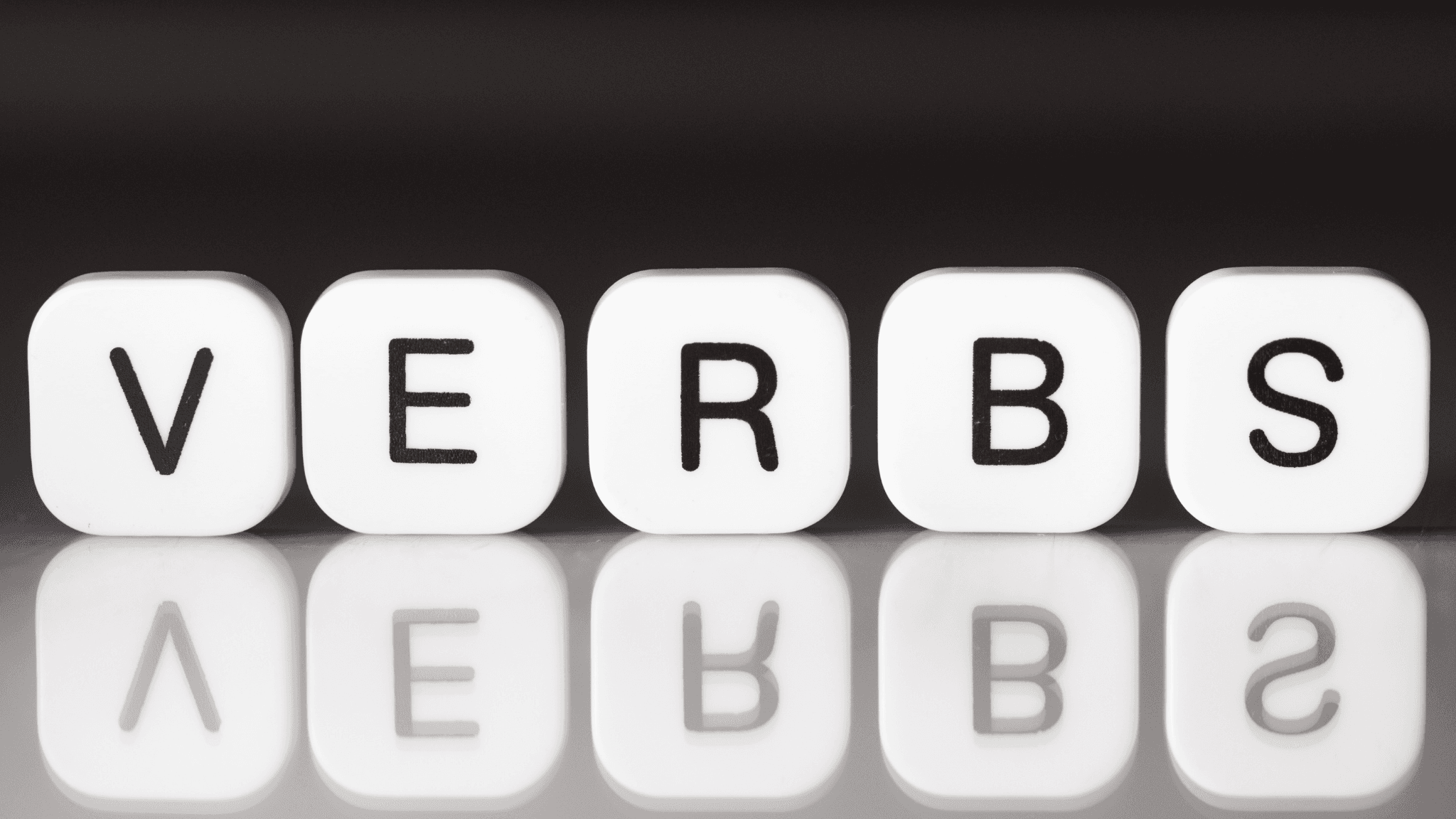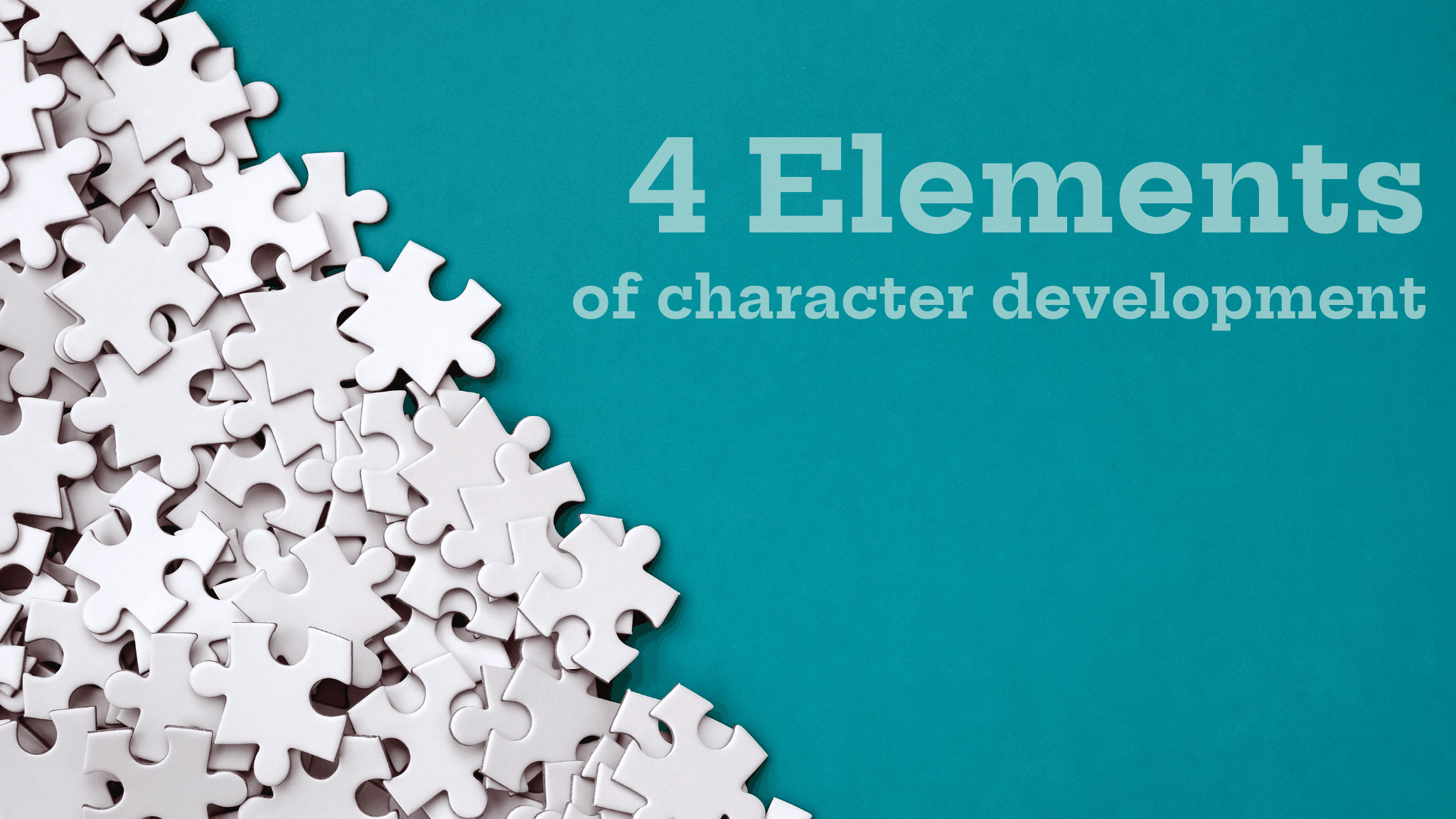Character Traits vs Character Development
Today we are going to be talking about character traits, character development and how to write great characters in your screenplay.
Basically, all of character development comes down to one really simple concept:
A lot of people think that characters are adjectives. They think that a character is “funny,” “responsible,” “smart,” “kind” or “hard-working.” But characters are actually verbs.
When developing characters, writers often think that characters are their traits. But what makes a character feel like a character is actually the verbs that they do.
If you want to understand if you are building great characters, or if you are simply building what I call characteristics, all you have to do is ask yourself: is my character an adjective or is my character a verb?
If your character is an adjective, there’s a really good chance that you are not writing a character, but a stereotype.
In other words, that you’re writing “a funny best friend,” as opposed to this funny best friend, that you are writing “a brilliant scientist” rather than this brilliant scientist.
It’s not our traits that make us who we are. It’s our actions.
If you think about your best friend, I’m sure they have a lot of the same traits as any other best friend.
They may be caring. They may be reliable, smart, dependable, fun to hang out with. They have a bunch of character traits of adjectives that describe them, and all these adjectives are true.
But at the same time, you probably wouldn’t trade your best friend for my best friend.
Even if they have the same trades. Even if my best friend is also reliable, dependable, smart, fun to hang out with… you still wouldn’t want to trade. And the reason you wouldn’t trade is that your best friend does stuff, has done stuff and continues to do stuff. They continue to take actions with you, towards you and around you that makes you fall in love with them. That makes you remember them. That makes you say, “that is so them.”
It’s not the adjectives that lead to character development, it’s the verbs. It’s the things your characters are doing.
In my Write Your Screenplay class, I call this concept the how of the character: how is this character slightly different than any other character?
But the how is never independent of the action. The how is how the character does the verbs that make them, them.
When you’re developing characters in a screenplay, there are usually four elements in play.
The first element: does the character want anything?
How tangible is the want? The less tangible the want is, the harder your character development is going to be. Because the less tangible the want is, the less specific the actions that the character is going to take to get the want.
If the character wants a Starbucks, for example, it’s a relatively tangible want. But if the character wants a venti latte with oat milk, that’s a more specific want. And just in the want, we’re already starting to understand that character. Because the venti latte with oat milk character is completely different than the whole milk with whipped cream character, who is completely different than the frappuccino character.
If the character is not pursuing anything, or if the thing they’re pursuing is too general, it becomes harder and harder to write them. Whereas the more specific they are, the more specific their want is, the easier it is to write them. The easier it is to develop them, the easier it is to understand them.
The second element of character development is the emotional need that lies under the want.
We could teach (and we do teach) many hours on emotional need. But the simplest way to think about emotional need is that underneath the tangible goal, there is a primal need that is driving your character. There’s something that is core to who they are that is driving them.
For example, a character could want a Starbucks because I need justice. And the pressure between the tangible object of Starbucks and the emotional need of justice is going to change the way that character orders that Starbucks. Because they deserve that Starbucks. So when they order that venti latte with oat milk, the how of that dialogue might get very specific:
“…with oat milk and spell my name right. Because last time you got it wrong, and I drank whole milk, and it was disgusting.”
The character needs justice. And that need is driving their how as they pursue their want..
Whereas, a character who wants the venti latte with oat milk, with an emotional need underneath for love might speak quite difffently:
“Hey, how was your day? So nice to see you, Jim. What’s going on?”
That character’s got a completely different need. He needs Jim’s love, rather than justice for the mistaken latte last time.
You can see that this combination of want and need starts to reveal the how. It starts to guide you towards the how of the character.
The third element of character development in a screenplay is obstacle.
You’ve got to make it hard. Because if you don’t make it hard for your character to get what they want, the character never has to reveal anything about themselves. They can wear their mask the whole time.
Whereas if you make it hard… for example, give them a venti latte with skim milk…
Well, the character who wants love might gently suggest, “You know, I probably wasn’t clear. You do a great job, by the way. No, but I’d really like oat milk.”
Whereas the character who wants needs justice might bark, “Did you not hear me?”
Want, emotional need and obstacle, these elements together start to generate the fourth element of character development: the how of the character. But this how is not simply a character trait. It’s a way of doing an action that reflects who this character is, and the choices they are making.
One key to finding the how of your character is to seek and destroy anything normal that your character does.
In our real lives, most of what we do is normal.
“Hey, how you doing?”
“Good, good. How are you?”
“Good, good…”
We’ve all had this conversation.
Sometimes you’re so not present for that conversation that you actually ask the same question twice “how you doing?” Because you’re just going through the emotions of being a person. You’re just being normal. You’re not making choices or doing your how at all.
In our screenwriting and in our TV writing, we don’t want the “normal” character traits. The “normal” character traits are not memorable, because the normal character traits do not distinguish our character from any other character.
In real life, we experience a lot of “normal,” but that’s not what we tend to remember. And we’d never introduce a friend by describing the “normal” things they do.
“Oh, you’ve got to meet my friend, Mary. The other day, we were out at a bar, and she ordered a rum and coke… “
No! If you would never recount that story of Mary that way, no one would ever want to meet her.
Whereas if you introduce Mary like this:
“Mary is freaking crazy. Mary calls me up one day, and she’s like, ‘do you want to climb Mount Everest?’ And I’m like, ‘I don’t know anything about mountain climbing’ and Mary’s like, ‘neither do I. But I just got some awesome mountaineering shoes, and I got a warm parka. And I booked us a flight. And we’re going. And look, we’re just going to get as far as we get. And if we don’t make it to the top, who cares. But we can say we climbed Mount Everest!’
That’s Mary.
When you replace the normal with the specific in your character development, instantly, you know who the character is. And now it becomes really easy to develop the character, it becomes really easy to take her on a journey.
For example, when Mary goes out to the bar, Mary is not going to order a rum and coke. Mary is going tell the bartender “make me a drink I’ve never had before that takes me to a place I’ve never been.”
Mary is not going to ever do anything “normal” in your screenplay.
In real life. Half of what Mary does is normal and half of the time Mary’s going to Mount Everest. But in a screenplay, we’re giving the purest version of the character, where the character demonstrates her how from the very beginning.
What’s really nice is, when you have this want, this emotional need, this obstacle and this how, when you have these four elements of character, character development becomes so easy.
I started thinking Mary was “crazy” but what I’m seeing from her actions is that Mary is “fearless.” The adjectives are shifting as the character develops and reveals herself. But they still only tell a small portion of the story.
There are a million fearless characters. What’s fun about Mary is the verb of going to Mount Everest. The choice of “I don’t care how far we get.” The actions that she’s taken in dragging the other character along with her..
Adjectives sit flat, and force you, the writer, to do the work of demonstrating the character’s traits. Verbs have movement to them, they have action to them, they’re moving the character, and therefore the story, forward.
In other words, verbs are the choices the characters do, that will end up showing you and your audience what the traits of these characters actually are.
Once you know that Mary is hiking Mount Everest, her character development is really easy.
For example, you can say to yourself: I need to bring fearless Mary to a place where she is afraid.
I’ve got to bring Mary to a place where Mary says, “no.”
I’ve got to bring Mary to a place where Mary says, “I just want to go home.”
I’ve got to move Mary to that place. And then maybe I’ve got to move her to another place from there.
Once I know the verbs that Mary does, to develop her character, I just have to ask, “what would a slightly or highly different version of that verb be?”
Just by asking that question, it becomes so easy to figure out things that might have to happen to Mary, the kinds of choices that she might have had to make, the kind of obstacles she might have had to face, that would eventually bring her to, “I just want to go home.”
Character development does not happen through adjectives. Character development happens through verbs.
Why is this? Because this is how we are built as human beings.
We, as human beings are not the adjectives that we happen to be. We are the things that we happen to do. And this is why characters develop.
When you write an adjective, what you’re really doing is you’re putting your character in a box. You’re saying to your character, “this is who you are, this is who I want you to be.”
But characters are just like us– we’re so much more malleable than that! None of us are just one thing. The fearless person also has fear in her, the brave person also has cowardice in him.
The loving person can also be cruel. We all have all these dualities in us.
Instead of looking for the adjectives that stick your character in a box, and that force you to try to figure out how to show who your character is, see what happens if you let your character out of the box you’ve created for them.
Think instead, “I’m just going to observe my character.”
You can observe them doing anything. It can be something big, like trying to finally tell the person she loves that she loves her. Or it can be something small, like baking bread.
Every time we watch our character do something, we’re going to ask ourselves a simple question: how is my character doing this thing in a slightly different way than any other character?
One of the ways that you can find that is by connecting to the need. Another way you can find that is connecting to the want. Another way you can do that is connecting to the obstacle. And another way you can do that is just asking, “how is different? How is it unique? How is it specific?
How does my character say hello in a different way than any other character? What is the verb that my character is doing that makes her/him/them so compelling? What is the thing that captures, not how they’re completely different, but how they’re slightly different from other characters of this type.
This is how you avoid writing stereotypes, how you stop writing character traits, and how you start developing characters that audiences fall in love with.
As an example, let’s talk about Tony Soprano.
How many mobsters have we seen on television? If we were going to describe Tony with adjectives, he would sound like all the rest of them. We would probably say he’s sociopathic, violent, selfish, brutal.
But those adjectives don’t make Tony Soprano, Tony Soprano.
What makes Tony Soprano different from every other mobster that we’ve seen on TV or Film are the verbs that he does.
The big famous verb, of course, is he goes to therapy. This makes him a completely different mobster than we’ve ever seen before. This is not Vito Corleone. This is not Get Shorty. This is a completely different mobster. He does the verb of going to therapy. He does the verb of passing out over a bunch of ducks.
He does the verb of showing up for the mother, who never has a kind word to say to him, who is actually plotting his death. He does the verb of kowtowing to his uncle June who wants to kill him.
He does the verb of brutally murdering people. He does the verb of cheating on his wife. He does the verb of letting Chris get away with stuff he wouldn’t let anybody else get away with because he loves him. He is constantly doing verbs.
If you think of the character of Carmela Soprano. She’s also who she is because of verbs.
She’s who she is because she’s always trying (at least in Season One) to get Tony to go to church. She is who she is because she’s always falling in love with somebody, although she never actually has the affair. In Season One, it’s the priest, and a later season it’s going to be Furio. But she’s always conducting these unrequited love stories that she’s never going to fully pursue.
She does the verb of trying to get out, but she also does the verb of always choosing the money. She does the verb of fighting for her children’s college educations.
It’s these verbs that she does that distinguish Carmela from every other mob wife. It’s the verbs that she does, in the unique ways that she does them, that makes Carmela, Carmela.
When you’re thinking about your characters, don’t work so darn hard.
Don’t think “how do I establish for the audience who this character is.” Instead, think, “what does the character want? What does the character need? What is their obstacle and what is their how?”
Listen. How do they talk slightly differently than any other character?
Look. How do they do even the simplest action– eating a sandwich for example– slightly different than any other character?
And once you find those little specific moments, then all you have to do is play with them.
Every time you meet the character you can just ask yourself, “are they doing something similar that outdoes what we saw before in some way? Or are they doing something strongly contrasting.” In this way, you will find your character development organically.
In this way, you will discover your characters in the same way you discover your friends, not by putting labels on them, or putting them in a box, but rather by spending time with them, going on a journey with them, letting them make choices in relation to the thing they want, and allowing them to reveal themselves to you.
And, I would suggest, if you want to get to know yourself better, if you want to go on a journey of your own, and allow yourself the same development you wish for your characters, then think of yourself like a character.
Stop labeling yourself. Stop saying “I’m smart, I’m dumb, I’m talented, I’m slow, I’m struggling, I’m troubled, I’m brilliant. I’ve got it together.”
Stop doing the adjectives. Because you are not just one adjective.
To quote Walt Whitman “I am large, I contain multitudes”
You are large. You contain multitudes. We are not one adjective, we are only the things we do. And if we want to develop our characters, well, we can develop our characters the same way we develop ourselves: by realizing that we don’t have to be today who we were yesterday.
All we have to do, if we want to develop ourselves, or if we want to develop our characters, is to make choices that we haven’t made before.
We have to do verbs that we haven’t done before. And inevitably, when we do that, two things will happen.
#1: we’re going to start to find structure in our lives, because we’re making new choices that give us meaning.
#2: we’re going to start to reveal our real character traits, not the ones that we’re used to, not the box that we hang out in and not the labels that we have been stuck with, but the multitudes that we contain, the full scope of who we can really become.
I hope that you enjoyed this podcast, please like and follow.
Write us a review and come join us every Thursday night.
We have a free writing class. Thursday Night Writes. It is awesome. We have an incredible community so come check it out.
*Edited for length and clarity







